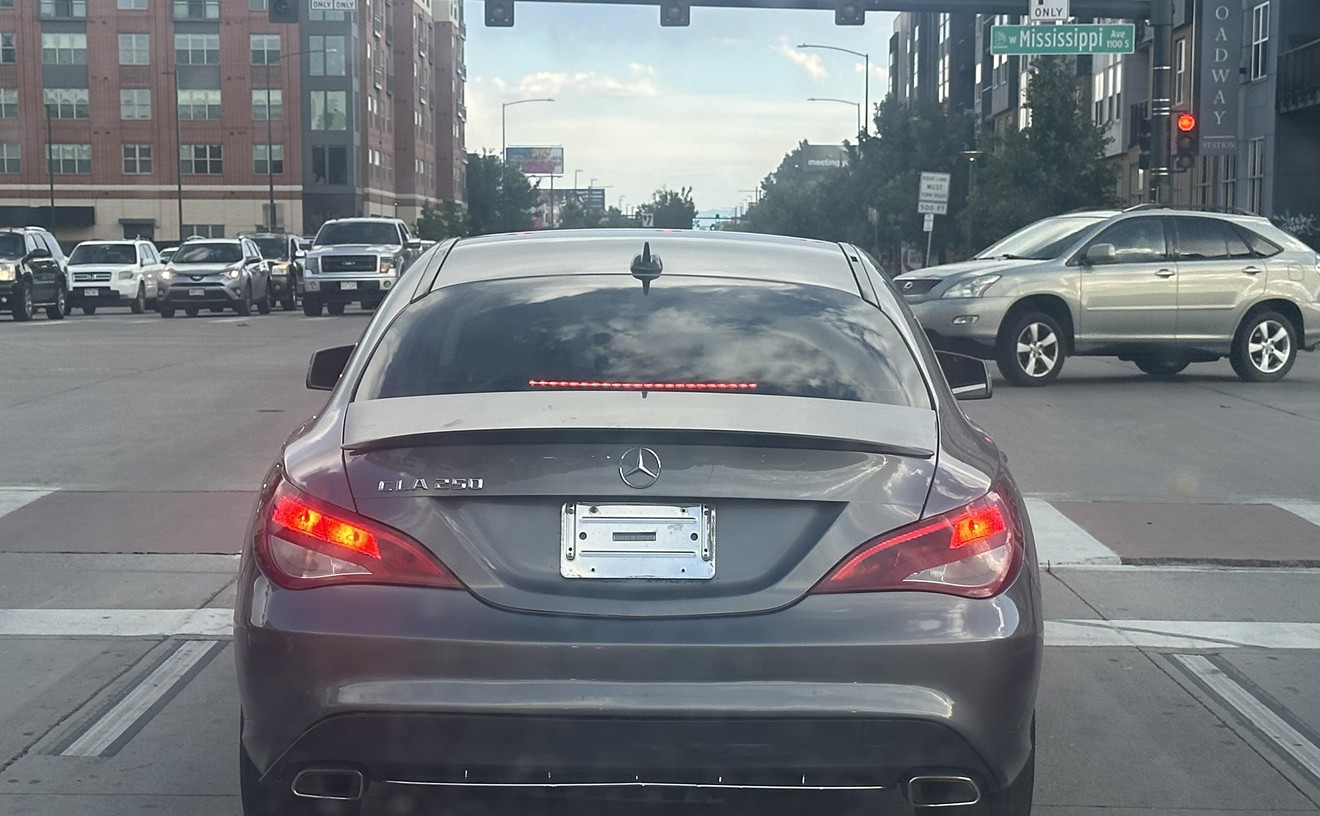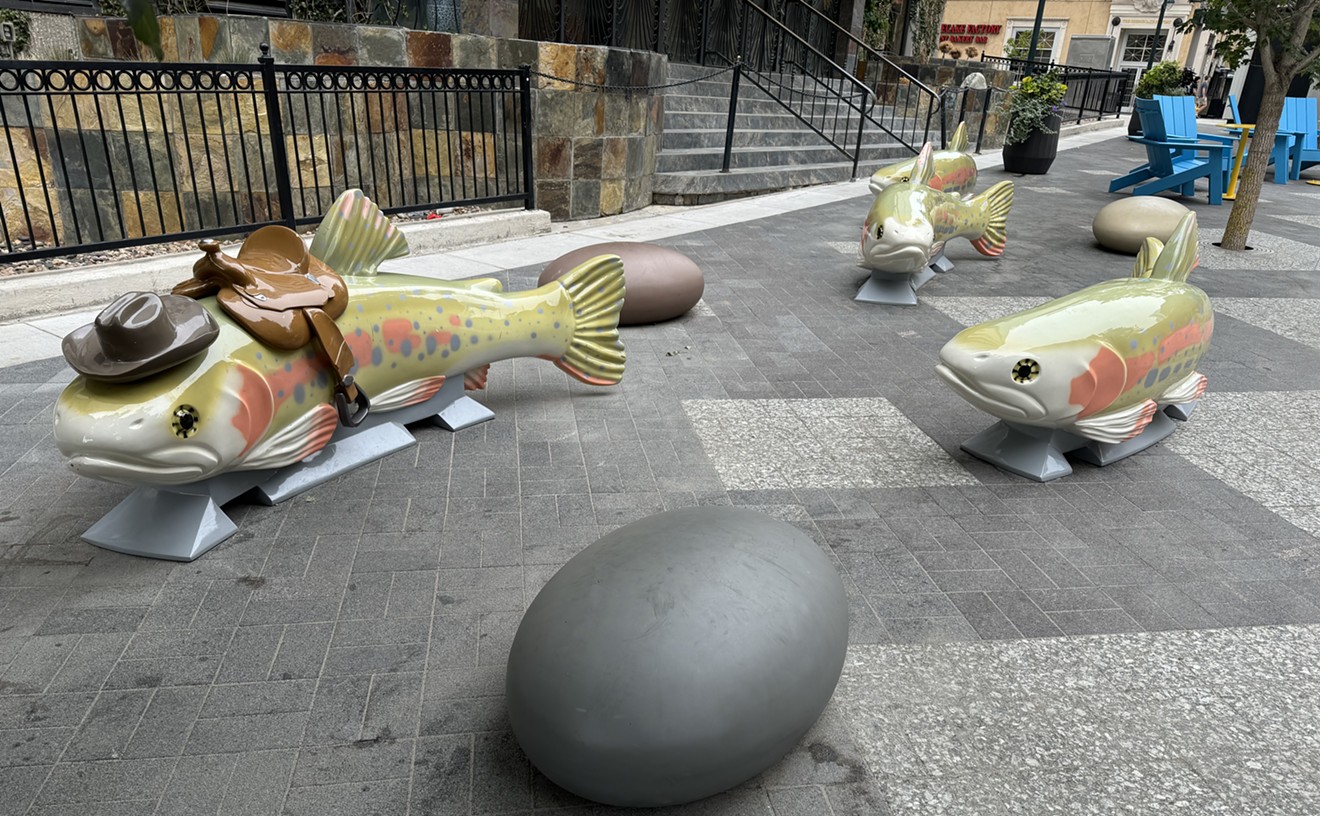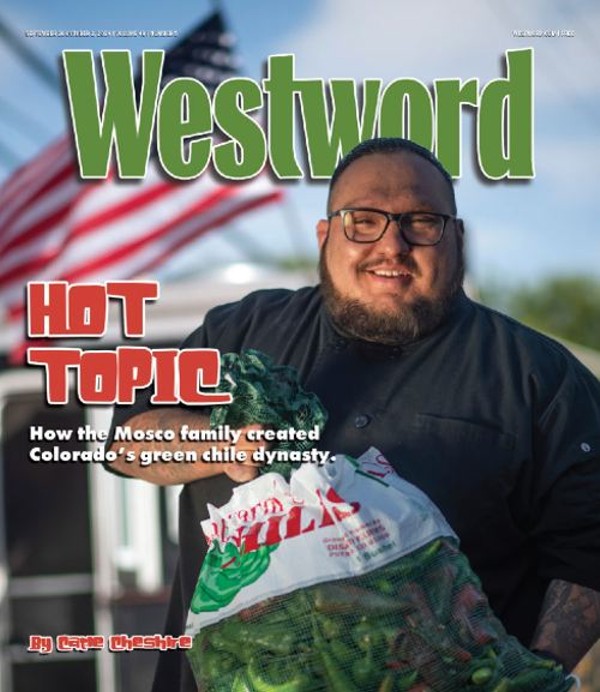A Denver ballot measure will soon give voters the chance to ban new fur products from the city, with the impacts reaching far beyond fur coats.
If passed by voters in November, Citizen-Initiated Ordinance 308 would prohibit the manufacture, distribution, display, sale and trade of most animal fur products in Denver beginning in July 2025. While the measure includes some exceptions, it is written to be comprehensive, applying to any new product "made in whole or in part of fur."
"We believe this comprehensive approach is necessary to effect meaningful change and reflect the values of our community," says Olivia Hammond of Pro-Animal Future, the group behind the ballot measure. "Initiative 308 is an important step towards ending the unethical practice of killing animals for fashion accessories."
Proponents say the ban would help compel the fashion industry to stop raising animals in captivity only to later kill them for their pelts, condemning the method as "shocking animal cruelty." However, critics raise concerns that the ban is too far-reaching and would negatively impact local retailers.
The opposition group, Hands Off My Hat, emphasizes that the fur ban would also apply to products like felt cowboy hats and fly-fishing flies, in addition to more obvious targets.
"This ban will cost jobs and have financial consequences for our city," says Landon Gates of Hands Off My Hat. "Initiative 308 will have direct impacts on the National Western Stock Show, Denver March Powwow, the Indian Market and Southwest Arts Fest — some of Denver’s most iconic events. In 2015, Denver voters approved investing over a billion dollars in the Stock Show. This measure threatens that investment."
According to Gates, 20 to 30 percent of the trade vendors at the National Western Stock Show would be impacted by the ban, unable to sell certain merchandise including rugs, socks and teddy bears. Similar concerns have been voiced by fly-fishing shops and organizers of the Denver March Powwow.
Since the prohibition would not take effect until July 2025, advocates argue that retailers can phase out their fur products in favor of non-animal alternatives.
"When we're talking about animals being brutally killed purely for the sake of clothing, it's hard to justify accessories like fur hats when we have so many alternative materials," Hammond says. "Is it really worth it for dozens of animals to suffer and die brutally so a store can sell a $600 rabbit-fur blanket? ... This is an opportunity for voters to decide whether to move away from a cruel and outdated industry."
Sixteen municipalities and the state of California have passed similar prohibitions on new fur products, according to the Yes on 308 committee. Boulder voters narrowly passed a fur ban in 2021.
"I recognize there is concern for the treatment of the four-legged creatures, but this is not the way to protect them," says Ken LaDeaux, board president of the Denver March Powwow. "The ban has a direct effect on our many fur-based items as we use them in our lives. The genocidal activities employed in the Plains Wars was to eliminate the buffalo, which provided for the existence of the many tribes residing there. The fur ban has the same effect."
Here's how the proposed fur ban would impact certain products if Denver voters approve it this November:
Fur Clothes and Accessories: Banned
The primary target of the ban is any article of clothing or accessory that is made using fur. This prohibition includes, but is not limited to, coats, jackets, handbags, purses, wallets, shoes, slippers, hats, earmuffs, scarfs, shawls, gloves and jewelry.
Felt Cowboy Hats: Banned
The felt hats are most commonly made with beaver, rabbit or hare fur. All such hats would be prohibited under the ban. Wool hats would still be allowed, though Gates calls wool hats the "lowest quality," describing them as "costume grade" and not able to withstand the elements.
Fly-Fishing Flies With Hair: Banned
Fly-fishing flies and other lures that use animal fibers such as deer hair and elk hair would be banned. Gates says such flies account for up to 80 percent of flies in some local shops. Since these products are a small part of Denver fur sales, Hammond says that Pro-Animal Future would not oppose the fly-fishing community seeking an exemption from Denver City Council if the ban passes.
Leather: Not Banned
New leather jackets and couches are safe from the ban: The ballot measure specifies that "an animal skin or part thereof that is to be converted into leather" does not qualify as a fur product. Hammond says this is because leather is a by-product of the meat industry.
Wool: Not Banned
Like leather, wool is not included in the definition of a fur product. Wool products would not be prohibited by the ban; lambskin or sheepskin with the fleece attached and cowhide with the hair attached would also be safe.
Online Fur Purchases: Banned
The ban would not only prohibit new fur products from being sold inside Denver stores, but also from being sold to Denver residences. Online purchases from outside retailers to be shipped inside the city would be forbidden under the ballot measure. Hammond says this provision is meant to assure there is "no disadvantage to local retailers."
Secondhand Fur: Not Banned
Under the ban, Denver residents could still get their hands on secondhand fur products. The measure allows the sale of used fur products by individuals or businesses that are "not in the primary business of selling fur products," such as thrift stores, pawn shops and nonprofit organizations.
Native American Fur Products: Partially Banned
The ballot measure exempts fur product purchases for "traditional tribal, cultural or spiritual purposes by a member of a federally recognized or state recognized Native American tribe" from the ban. However, some opponents have expressed concern that this carve-out is too narrow, since it does not apply to the majority of Native Americans who are self-identified and not officially enrolled with a government-recognized tribe.
Repurposed Used Fur: Not Banned
Products that are made from fur sourced from used fur products are still allowed under the ban. For example, if a fur rug was repurposed into a fur coat, that coat could still be bought and sold in the city.
Rabbit's Foot: Banned
The ballot measure specifically names fur keychains as included in the prohibition. So no more lucky rabbit's foot keychains if the ban is passed.
Fur Furniture and Home Decor: Banned
Any piece of furniture or home decor that uses new fur would be prohibited under the ban. This includes rugs, blankets, pillows and wall hangings.
Taxidermy: Not Banned
Under the ballot measure, fur products do not include "the pelt or skin of any animal that is preserved through taxidermy or for the purpose of taxidermy."

Audio By Carbonatix
[
{
"name": "Air - MediumRectangle - Inline Content - Mobile Display Size",
"component": "12017618",
"insertPoint": "2",
"requiredCountToDisplay": "2",
"watchElement": ".fdn-content-body",
"astAdList": [
{
"adType": "rectangle",
"displayTargets": "mobile"
}
]
},{
"name": "Editor Picks",
"component": "17242653",
"insertPoint": "4",
"requiredCountToDisplay": "1",
"watchElement": ".fdn-content-body",
"astAdList": [
{
"adType": "rectangleLeft",
"displayTargets": "desktop|tablet"
},{
"adType": "rectangleRight",
"displayTargets": "desktop|tablet|mobile"
}
]
},{
"name": "Inline Links",
"component": "18838239",
"insertPoint": "8th",
"startingPoint": 8,
"requiredCountToDisplay": "7",
"maxInsertions": 25
},{
"name": "Air - MediumRectangle - Combo - Inline Content",
"component": "17261320",
"insertPoint": "8th",
"startingPoint": 8,
"requiredCountToDisplay": "7",
"maxInsertions": 25,
"watchElement": ".fdn-content-body",
"astAdList": [
{
"adType": "rectangleLeft",
"displayTargets": "desktop|tablet"
},{
"adType": "rectangleRight",
"displayTargets": "desktop|tablet|mobile"
}
]
},{
"name": "Inline Links",
"component": "18838239",
"insertPoint": "8th",
"startingPoint": 12,
"requiredCountToDisplay": "11",
"maxInsertions": 25
},{
"name": "Air - Leaderboard Tower - Combo - Inline Content",
"component": "17261321",
"insertPoint": "8th",
"startingPoint": 12,
"requiredCountToDisplay": "11",
"maxInsertions": 25,
"watchElement": ".fdn-content-body",
"astAdList": [
{
"adType": "leaderboardInlineContent",
"displayTargets": "desktop|tablet"
},{
"adType": "tower",
"displayTargets": "mobile"
}
]
}
]













